California's 30th Congressional District election, 2024
All U.S. House districts, including the 30th Congressional District of California, held elections in 2024. The general election was November 5, 2024. The primary was March 5, 2024. The filing deadline was December 8, 2023.
Both Laura Friedman (D) and Alex Balekian (R) completed Ballotpedia's Candidate Connection survey. Click here to read their responses.
The outcome of this race affected the partisan balance of the U.S. House of Representatives in the 119th Congress. All 435 House districts were up for election.
At the time of the election, Republicans held a 220-212 majority with three vacancies.[1] As a result of the election, Republicans retained control of the U.S. House, winning 220 seats to Democrats' 215.[2] To read more about the 2024 U.S. House elections, click here.
In the 2022 election in this district, Democrats won the general election with no Republican opposition. Daily Kos calculated what the results of the 2020 presidential election in this district would have been following redistricting. Joe Biden (D) would have defeated Donald Trump (R) 72.2%-26.0%.[3]
For more information about the primaries in this election, click on the links below:
Candidates and election results
General election
General election for U.S. House California District 30
Laura Friedman defeated Alex Balekian in the general election for U.S. House California District 30 on November 5, 2024.
Candidate | % | Votes | ||
| ✔ |  | Laura Friedman (D)  | 68.4 | 213,100 |
 | Alex Balekian (R)  | 31.6 | 98,559 | |
| Total votes: 311,659 | ||||
 = candidate completed the Ballotpedia Candidate Connection survey. = candidate completed the Ballotpedia Candidate Connection survey. | ||||
| If you are a candidate and would like to tell readers and voters more about why they should vote for you, complete the Ballotpedia Candidate Connection Survey. | ||||
Do you want a spreadsheet of this type of data? Contact our sales team. | ||||
Nonpartisan primary election
Nonpartisan primary for U.S. House California District 30
The following candidates ran in the primary for U.S. House California District 30 on March 5, 2024.
Candidate | % | Votes | ||
| ✔ |  | Laura Friedman (D)  | 30.1 | 46,329 |
| ✔ |  | Alex Balekian (R)  | 17.4 | 26,826 |
 | Anthony Portantino, Jr. (D) | 13.3 | 20,459 | |
 | Mike Feuer (D) | 12.3 | 18,878 | |
 | Maebe A. Girl (D)  | 10.3 | 15,791 | |
| J. Emilio Martinez (R) | 4.4 | 6,775 | ||
 | Ben Savage (D) | 4.0 | 6,147 | |
 | Nick Melvoin (D) | 2.7 | 4,134 | |
 | Jirair Ratevosian (D)  | 1.9 | 2,889 | |
 | Sepi Shyne (D) | 1.4 | 2,126 | |
 | Courtney Najera (D)  | 0.8 | 1,167 | |
 | Joshua Bocanegra (No party preference) | 0.5 | 780 | |
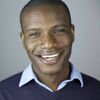 | Steve Dunwoody (D) | 0.5 | 727 | |
 | Francesco Arreaga (D) | 0.3 | 532 | |
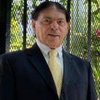 | Sal Genovese (D) | 0.3 | 442 | |
| Total votes: 154,002 | ||||
 = candidate completed the Ballotpedia Candidate Connection survey. = candidate completed the Ballotpedia Candidate Connection survey. | ||||
| If you are a candidate and would like to tell readers and voters more about why they should vote for you, complete the Ballotpedia Candidate Connection Survey. | ||||
Do you want a spreadsheet of this type of data? Contact our sales team. | ||||
Withdrawn or disqualified candidates
- Patrick Gipson (R)
- Eric Sawchuk (R)
- Sarah Idan (D)
- Mike Castellanos (D)
- Drew Britton (D)
- Michael Huckabee (R)
Candidate profiles
This section includes candidate profiles that may be created in one of two ways: either the candidate completed Ballotpedia's Candidate Connection survey, or Ballotpedia staff may compile a profile based on campaign websites, advertisements, and public statements after identifying the candidate as noteworthy. For more on how we select candidates to include, click here.
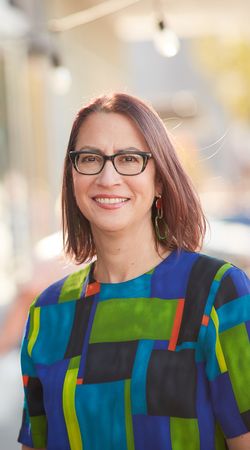
Party: Democratic Party
Incumbent: No
Submitted Biography: "Laura Friedman is running to succeed Congressmember Adam Schiff in California’s 30th Congressional District. Laura has an extraordinary record of progressive leadership as a State Assemblymember; Glendale City Councilmember and Mayor, community activist; and in the private sector. From banning gun shows from being held on Glendale city property and across the street from schools, authoring meaningful legislation to add more affordable housing, ending the fur trade in California, co-authoring single-payer healthcare legislation and authoring first-in-the-nation legislation to combat climate change, Laura has achieved results on every progressive issue in California politics. Now she wants to use her experience to bring about effective change in Congress."
![]()
This information was current as of the candidate's run for U.S. House California District 30 in 2024.
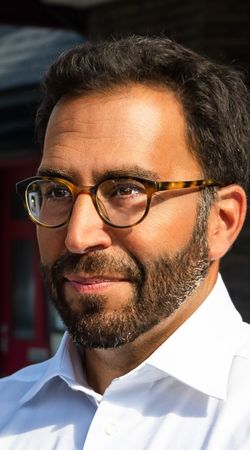
Party: Republican Party
Incumbent: No
Submitted Biography: "Hello, I’m Alex Balekian. Glendale, California, has been my home for my entire life. I've grown up here, learned from the local public school system, and it's here where I've built my life and career. From this strong foundation, I dedicated myself to becoming an ICU physician. The experience was transformative, especially during the COVID crisis. The frontlines taught me the value of resilience, adaptability, and selfless service—lessons I aim to carry forward in my public service. Now, I'm excited to take on a new challenge. In 2024, I'll be your candidate for the House in CA-30. My fiscal conservatism and social moderation guide my perspectives on policy, aiming for balance and pragmatism over political extremes. I'm not your traditional politician, and I stand firm against the influence of lobbyists. My mission? To reignite the civic spirit within our communities, to encourage more regular people like you and me to get involved, to take part in shaping our future. I'm Alex Balekian, and I'm ready to represent you in Congress. Let's stand together to bring about the change we need."
![]()
This information was current as of the candidate's run for U.S. House California District 30 in 2024.
Voting information
- See also: Voting in California
Ballotpedia's Candidate Connection survey responses
Ballotpedia asks all federal, state, and local candidates to complete a survey and share what motivates them on political and personal levels. The section below shows responses from candidates in this race who completed Ballotpedia's Candidate Connection survey. Candidates are asked three required questions for this survey, but they may answer additional optional questions as well.

Survey responses from candidates in this race
Click on a candidate's name to visit their Ballotpedia page.
Note: Ballotpedia reserves the right to edit Candidate Connection survey responses. Any edits made by Ballotpedia will be clearly marked with [brackets] for the public. If the candidate disagrees with an edit, he or she may request the full removal of the survey response from Ballotpedia.org. Ballotpedia does not edit or correct typographical errors unless the candidate's campaign requests it.
| Collapse all

Alex Balekian (R)
At the core of my campaign is an unwavering commitment to the middle class and small businesses - the true lifeblood of our economy. These hardworking individuals and organizations form the backbone of our communities, and their prosperity directly translates into the overall health of our nation. For too long, the middle class and small business owners have been burdened with excessive taxes and entangled in bureaucratic red tape. My mission is to cut through these barriers, paving the way for an economic environment that encourages growth and innovation. I will fight tirelessly against unfair taxation and overregulation that cripple the very individuals and businesses we should be supporting.
As a child of immigrants, I bring a unique perspective to the immigration discussion. I firmly believe in policies that secure our borders, ensuring the safety and integrity of our nation. Simultaneously, it's crucial we incentivize hardworking immigrants through a point-based system. This approach recognizes the value they bring, contributing to the rich mosaic of our diverse nation and fueling our economic growth.

Laura Friedman (D)
Of all the candidates in the race, I have the greatest amount of endorsements which are truly meaningful to the voters in this district. I have been endorsed by the LA Times, by far the most Democratic Clubs, IATSE, and trusted leaders including Congresswoman Judy Chu, California Lt. Governor Eleni Kounalakis, California State Superintendent Tony Thurmond, California Treasurer Fiona Ma, LA City Councilmembers Nithya Raman, Hugo Soto Martinez and Katy Yaroslovsky, Burbank Mayor Nick Schultz, Burbank Councilmembers Nikki Perez and Konstantine Anthony, and Glendale Councilmember Paula Devine. My candidacy is supported by the League of Conservation Voters, the Congressional Progressive Caucus, Emily’s List, and dozens more.
As a California State Assemblymember, as a Glendale City Councilmember and Mayor, I have led on groundbreaking local and state environmental policies. I have been a steadfast advocate for increasing our investments in, and commitment to, 100% clean renewable energy; decarbonizing our economy; reducing single-passenger vehicle trips and investing instead in better, more efficient, mass transit options. This is the reason that I’ve been endorsed by every major environmental group which has taken a position in the race.

Alex Balekian (R)
My unique insights from years of practicing medicine have allowed me to recognize key areas for reform: the cost of medication is a significant concern. We must foster a shift where physicians are encouraged, and patients are educated, to opt for more cost-effective generic drugs, instead of assuming higher-priced equals better. Additionally, we need to standardize care using evidence-based guidelines. This approach could not only contain costs but also diminish health disparities by promoting equal treatment for all patients. Our system disproportionately rewards physicians for complex procedures rather than meaningful patient interactions. To enhance patient outcomes, we must prioritize a compensation structure that values comprehensive care and open dialogues about treatment plans.

Laura Friedman (D)

Alex Balekian (R)
Teddy Roosevelt was a man of unwavering principles. He was by no means perfect, and his unapologetic manliness concealed an inner turmoil that ate away at him slowly. But his most famous adage -- Speak softly and carry a big stick -- is one of the best pieces of advice I know.
Medical school was a tumultuous time for me (I moved away and came out of the closet to everyone but my parents), and to say that I lost my focus academically would be an understatement. Dr Hillis hand-picked his class of 50 interns every year, and he spotted this second-string medical student and turned him into a first-rate physician.
A man of few words, he made sure that each spoken syllable carried immeasurable weight. The big stick that he carried was his personal brand of quiet confidence that came with his polished, unparalleled brilliance. If I could be even half as good as him on one of his worst days, I could die happy and fulfilled.
Laura Friedman (D)

Laura Friedman (D)

Alex Balekian (R)

Alex Balekian (R)

Alex Balekian (R)
First, its diversity. The House is a beautiful tapestry woven with representatives from every nook and cranny of this nation, from the smallest towns to the biggest cities. It brings together a diverse mix of backgrounds, experiences, and perspectives, much like the immigrant family I come from. That's something truly unique and special.
Second, its proximity to the people. The House, with its two-year terms, stays closely connected to the pulse of the American people. We're designed to be the voice of the people in our government, and that makes the House a dynamic, responsive body that's deeply rooted in our communities.
Third, the House's power of the purse. The fact that all revenue-related bills originate in the House gives us a crucial role in shaping the nation's financial policies. We get to decide where and how the government uses its resources. This responsibility to ensure fiscal prudence and safeguard taxpayers' money is something I take very seriously.
Finally, the collaborative nature of the House. Despite our differences, we must work together to get things done. It's a place where negotiation, compromise, and collaboration aren't just desired – they're necessary. It embodies the spirit of our Republic, of coming together to make things better, even with our individual and collective flaws.
So for me, the House of Representatives is an embodiment of the American dream - it's a place where anyone, no matter their background, can have a voice and make a difference. It’s the people’s house, and I'm proud to aspire to be a part of it.
Alex Balekian (R)
As a physician, my experiences in healthcare have given me a unique perspective on one of the most critical issues our nation faces. This hands-on, real-world experience allows me to understand the challenges in ways that career politicians might not. It equips me with the knowledge and skills to propose innovative, practical solutions based on firsthand experiences and observations. This diverse experience brings fresh perspectives, new ideas, and out-of-the-box thinking to policy discussions.
Moreover, when our representatives come from a wide range of backgrounds, our government becomes more representative of the diversity of the American people and their experiences. It allows for more comprehensive decision-making that takes into account a multitude of perspectives.
Thus, while experience in government can be beneficial, it should not be the only criterion we consider when electing our representatives. The ultimate goal should be to elect individuals who are deeply committed to serving their constituents, who bring a wide array of experiences to the table, and who are capable of innovative, forward-thinking policy-making. As a physician stepping into the political arena, I aim to bring that diverse experience and fresh perspective to work for you.
Alex Balekian (R)
Our bipartisan system has increasingly become an arena of partisan warfare, rather than a platform for collaborative policymaking. This polarization stymies our ability to pass substantial, meaningful policy, creating gridlock that hampers our nation's progress and development. As a result, we're falling behind on the global stage in key areas such as economic innovation, education, environmental protection, and healthcare.
It's alarming that political allegiance is taking precedence over the common good of the American people. This type of division doesn't just undermine the function of our government; it erodes the social fabric of our nation. It's essential for us to remember that we are countrymen and women first, not just members of a particular political party. We need to focus on finding common ground and working together to address the issues that matter most to our citizens.
One potential solution to this problem is inviting more political outsiders into the arena, individuals who aren't entrenched in the partisan politics that dominate our current system. These fresh voices can inject new perspectives and innovative ideas into the dialogue, transcending party lines and focusing on finding effective, practical solutions for our nation's challenges.
In conclusion, to meet the challenges of the next decade, we must prioritize bridging our political divide and fostering an environment of cooperation and mutual respect. We must remember that we're all striving towards a shared goal - building a stronger, more unified America.
Laura Friedman (D)

Alex Balekian (R)
Two-year terms are long enough to allow representatives to get things done, but short enough to prevent them from becoming entrenched in the system. They also allow the people to have a say in who represents them more frequently.
But while two-year terms are great for accountability, one of my main priorities on this campaign is enacting term limits which are important because they help to ensure that there is a constant turnover of ideas and perspectives in the House. They also help to prevent corruption and to keep elected officials accountable to the people.
Alex Balekian (R)
Term limits can address several key issues in our current political landscape. Firstly, they help curb the risk of corruption and complacency that can occur when individuals remain in power for extended periods. New representatives bring fresh ideas and perspectives, fostering innovation and preventing the stagnation that can accompany political entrenchment.
Secondly, term limits encourage political accountability. Elected officials who are conscious of their limited tenure may feel a stronger obligation to fulfill their campaign promises and serve their constituents effectively.
Thirdly, term limits can enhance political diversity by creating more opportunities for new candidates, including those from underrepresented groups. This leads to a more inclusive democracy that better reflects the diverse tapestry of our society.
To sum up, I firmly believe that term limits, when implemented wisely and in concert with other political reforms, can revitalize our democracy, foster innovation, and enhance political accountability. It's time for a shift away from career politicians and back towards a true spirit of public service.
Alex Balekian (R)
In an ideologically diverse nation, it's unrealistic and unproductive to expect all policy decisions to align perfectly with every individual's viewpoints. This is where the art of compromise comes into play. It allows us to navigate our differences, find common ground, and create solutions that, while not perfect for everyone, are mutually beneficial and work towards the common good.
Compromise doesn't mean surrendering principles or values, but rather it means acknowledging and respecting differing perspectives, and being willing to make concessions for the broader benefit. It means focusing on the larger goal of serving our citizens, and finding the balance between various interests and needs.
As we face complex, multi-faceted challenges, it's imperative that we embrace the spirit of compromise more than ever. We must break free from the gridlock of partisan politics and work together to craft policies that advance our nation and improve the lives of all Americans. As your representative, my commitment is to this principle of compromise, to listen, to understand, and to work tirelessly to build bridges of consensus for the betterment of our community and our nation.

Laura Friedman (D)

Alex Balekian (R)
If I am elected to Congress, I will use this power to make sure that our tax system is fair and that our government is fiscally responsible. I will work to simplify the tax code, close tax loopholes, and balance the budget. I believe these are essential priorities for our nation."
I believe that a fair and efficient tax system is essential for a strong economy. A simple and easy-to-understand tax code will help taxpayers comply with the law and reduce the burden on businesses. Closing tax loopholes will ensure that everyone pays their fair share, and balancing the budget will help to ensure our long-term fiscal health.
I am committed to using the Origination Clause to make sure that our tax system is fair and that our government is fiscally responsible. I believe that these are essential priorities for our nation, and I will work tirelessly to achieve them.
Alex Balekian (R)
We should use these powers to ensure transparency and accountability from the executive branch and government agencies. This is about maintaining checks and balances in our system, ensuring that power isn't being abused or used improperly.
At the same time, we must ensure that we're not wasting taxpayers' money on endless investigations that go nowhere. We must be mindful of the cost and the time involved. We should focus our efforts on the issues that genuinely matter to our constituents – from the economy to healthcare, education, and national security.
So, for me, the answer lies in balance and pragmatism. Let's use our investigative powers, but let's use them wisely, responsibly, and in a manner that ultimately serves the best interests of the people we represent.
Laura Friedman (D)

Laura Friedman (D)
Campaign finance
| Name | Party | Receipts* | Disbursements** | Cash on hand | Date |
|---|---|---|---|---|---|
| Laura Friedman | Democratic Party | $1,835,665 | $1,538,917 | $296,748 | As of December 31, 2024 |
| Alex Balekian | Republican Party | $414,871 | $319,644 | $95,227 | As of September 30, 2024 |
|
Source: Federal Elections Commission, "Campaign finance data," 2024. This product uses the openFEC API but is not endorsed or certified by the Federal Election Commission (FEC).
* According to the FEC, "Receipts are anything of value (money, goods, services or property) received by a political committee." |
|||||
General election race ratings
- See also: Race rating definitions and methods
Ballotpedia provides race ratings from four outlets: The Cook Political Report, Inside Elections, Sabato's Crystal Ball, and DDHQ/The Hill. Each race rating indicates if one party is perceived to have an advantage in the race and, if so, the degree of advantage:
- Safe and Solid ratings indicate that one party has a clear edge and the race is not competitive.
- Likely ratings indicate that one party has a clear edge, but an upset is possible.
- Lean ratings indicate that one party has a small edge, but the race is competitive.[4]
- Toss-up ratings indicate that neither party has an advantage.
Race ratings are informed by a number of factors, including polling, candidate quality, and election result history in the race's district or state.[5][6][7]
| Race ratings: California's 30th Congressional District election, 2024 | |||||||||
|---|---|---|---|---|---|---|---|---|---|
| Race tracker | Race ratings | ||||||||
| November 5, 2024 | October 29, 2024 | October 22, 2024 | October 15, 2024 | ||||||
| The Cook Political Report with Amy Walter | Solid Democratic | Solid Democratic | Solid Democratic | Solid Democratic | |||||
| Decision Desk HQ and The Hill | Safe Democratic | Safe Democratic | Safe Democratic | Safe Democratic | |||||
| Inside Elections with Nathan L. Gonzales | Solid Democratic | Solid Democratic | Solid Democratic | Solid Democratic | |||||
| Larry J. Sabato's Crystal Ball | Safe Democratic | Safe Democratic | Safe Democratic | Safe Democratic | |||||
| Note: Ballotpedia reviews external race ratings every week throughout the election season and posts weekly updates even if the media outlets have not revised their ratings during that week. | |||||||||
Ballot access
The table below details filing requirements for U.S. House candidates in California in the 2024 election cycle. For additional information on candidate ballot access requirements in California, click here.
| Filing requirements for U.S. House candidates, 2024 | ||||||
|---|---|---|---|---|---|---|
| State | Office | Party | Signatures required | Filing fee | Filing deadline | Source |
| California | U.S. House | All candidates | 40-60 | $1,740.00[8] | 12/8/2023 | Source |
District analysis
Click the tabs below to view information about voter composition, past elections, and demographics in both the district and the state.
- District map - A map of the district in place for the election.
- Competitiveness - Information about the competitiveness of 2024 U.S. House elections in the state.
- Presidential elections - Information about presidential elections in the district and the state.
- State party control - The partisan makeup of the state's congressional delegation and state government.
Below was the map in use at the time of the election. Click the map below to enlarge it.

This section contains data on U.S. House primary election competitiveness in California.
| California U.S. House primary competitiveness, 2014-2024 | ||||||||||||||
|---|---|---|---|---|---|---|---|---|---|---|---|---|---|---|
| Office | Districts/ offices |
Seats | Open seats | Candidates | Possible primaries | Contested top-two primaries | % of contested primaries | Incumbents in contested primaries | % of incumbents in contested primaries | |||||
| 2024 | 52 | 52 | 7 | 241 | 52 | 42 | 80.8% | 36 | 80.0% | |||||
| 2022 | 52 | 52 | 5 | 272 | 52 | 52 | 100.0% | 47 | 100.0% | |||||
| 2020 | 53 | 53 | 4 | 262 | 53 | 47 | 88.7% | 32 | 64.0% | |||||
| 2018 | 53 | 53 | 2 | 244 | 53 | 41 | 77.4% | 39 | 76.5% | |||||
| 2016 | 53 | 53 | 4 | 202 | 53 | 40 | 75.5% | 36 | 73.5% | |||||
| 2014 | 53 | 53 | 6 | 209 | 53 | 38 | 71.7% | 32 | 68.1% | |||||
Post-filing deadline analysis
The following analysis covers all U.S. House districts up for election in California in 2024. Information below was calculated on 1/16/2024, and may differ from information shown in the table above due to candidate replacements and withdrawals after that time.
Two-hundred forty-one candidates filed to run for California's 52 U.S. House districts in 2024, including 125 Democrats, 88 Republicans, and 28 independent or minor party candidates. That’s 4.63 candidates per district. In 2022, the first election after the number of congressional districts in California decreased from 53 to 52 following the 2020 census, 5.2 candidates filed per district. In 2020, when the state still had 53 Congressional districts, 4.94 candidates filed per district. In 2018, 4.6 candidates filed.
The 241 candidates who ran in California in 2024 were the fewest total number of candidates since 2016, when 202 candidates ran. Forty-five incumbents—34 Democrats and 11 Republicans—ran for re-election. That was fewer than in 2022, when 47 incumbents ran. Six districts were open, one more than in 2022, and the most since 2014, when six districts were also open.
Incumbents Barbara Lee (D-12th), Adam Schiff (D-30th), and Katie Porter (D-47th) ran for the state’s open U.S. Senate seat. Incumbent Sen. Laphonza Butler (D) didn't run for re-election. Incumbents Grace Napolitano (D-31st), Tony Cárdenas (D-29th), and Anna Eshoo (D-16th) retired from public office. One incumbent—Rep. Kevin McCarthy (R-20th)—left Congress before the end of his term. A special election was held to fill his seat before the general election.
Fifteen candidates—12 Democrats, two Republicans, and one nonpartisan—ran in the open 30th district, the most candidates running for a seat in 2024.
Forty-two primaries were contested, the fewest since 2018, when 41 were contested. All 52 primaries were contested in 2022, and 47 were in 2020. In California, which uses a top-two primary system, a primary is contested if more than two candidates file to run.
Incumbents ran in 35 of the 42 contested primaries. That’s lower than 2022, when 47 incumbents ran in contested primaries, but higher than every other year since 2014. In 2020, 32 incumbents faced contested primaries. Thirty-nine incumbents did so in 2018, 36 in 2016, and 32 in 2014.
Democratic candidates ran in every district. Republican candidates ran in every district except one—the 37th. Two Democrats, including incumbent Sydney Kamlage-Dove, one nonpartisan candidate, and one Peace and Freedom Party member ran in that district.Partisan Voter Index
Heading into the 2024 elections, based on results from the 2020 and 2016 presidential elections, the Cook Partisan Voter Index for this district was D+23. This meant that in those two presidential elections, this district's results were 23 percentage points more Democratic than the national average. This made California's 30th the 49th most Democratic district nationally.[9]
2020 presidential election results
The table below shows what the vote in the 2020 presidential election would have been in this district. The presidential election data was compiled by Daily Kos.
| 2020 presidential results in California's 30th based on 2024 district lines | ||||
|---|---|---|---|---|
| Joe Biden |
Donald Trump | |||
| 72.2% | 26.0% | |||
Inside Elections Baselines
- See also: Inside Elections
Inside Elections' Baseline is a figure that analyzes all federal and statewide election results from the district over the past four election cycles. The results are combined in an index estimating the strength of a typical Democratic or Republican candidate in the congressional district.[10] The table below displays the Baseline data for this district.
| Inside Elections Baseline for 2024 | ||||
|---|---|---|---|---|
| Democratic Baseline |
Republican Baseline |
Difference | ||
| 75.9 | 23.6 | D+52.3 | ||
Presidential voting history
California presidential election results (1900-2020)
- 15 Democratic wins
- 15 Republican wins
- 1 other win
| Year | 1900 | 1904 | 1908 | 1912 | 1916 | 1920 | 1924 | 1928 | 1932 | 1936 | 1940 | 1944 | 1948 | 1952 | 1956 | 1960 | 1964 | 1968 | 1972 | 1976 | 1980 | 1984 | 1988 | 1992 | 1996 | 2000 | 2004 | 2008 | 2012 | 2016 | 2020 |
|---|---|---|---|---|---|---|---|---|---|---|---|---|---|---|---|---|---|---|---|---|---|---|---|---|---|---|---|---|---|---|---|
| Winning Party | R | R | R | P[11] | D | R | R | R | D | D | D | D | D | R | R | R | D | R | R | R | R | R | R | D | D | D | D | D | D | D | D |
Congressional delegation
The table below displays the partisan composition of California's congressional delegation as of May 2024.
| Congressional Partisan Breakdown from California | |||
|---|---|---|---|
| Party | U.S. Senate | U.S. House | Total |
| Democratic | 2 | 43 | 45 |
| Republican | 0 | 8 | 8 |
| Independent | 0 | 0 | 0 |
| Vacancies | 0 | 1 | 1 |
| Total | 2 | 52 | 54 |
State executive
The table below displays the officeholders in California's top four state executive offices as of May 2024.
| State executive officials in California, May 2024 | |
|---|---|
| Office | Officeholder |
| Governor | |
| Lieutenant Governor | |
| Secretary of State | |
| Attorney General | |
State legislature
California State Senate
| Party | As of February 2024 | |
|---|---|---|
| Democratic Party | 32 | |
| Republican Party | 8 | |
| Other | 0 | |
| Vacancies | 0 | |
| Total | 40 | |
California State Assembly
| Party | As of February 2024 | |
|---|---|---|
| Democratic Party | 62 | |
| Republican Party | 18 | |
| Independent | 1 | |
| Other | 0 | |
| Vacancies | 0 | |
| Total | 80 | |
Trifecta control
The table below shows the state's trifecta status from 1992 until the 2024 election.
California Party Control: 1992-2024
Nineteen years of Democratic trifectas • No Republican trifectas
Scroll left and right on the table below to view more years.
| Year | 92 | 93 | 94 | 95 | 96 | 97 | 98 | 99 | 00 | 01 | 02 | 03 | 04 | 05 | 06 | 07 | 08 | 09 | 10 | 11 | 12 | 13 | 14 | 15 | 16 | 17 | 18 | 19 | 20 | 21 | 22 | 23 | 24 |
|---|---|---|---|---|---|---|---|---|---|---|---|---|---|---|---|---|---|---|---|---|---|---|---|---|---|---|---|---|---|---|---|---|---|
| Governor | R | R | R | R | R | R | R | D | D | D | D | D | R | R | R | R | R | R | R | D | D | D | D | D | D | D | D | D | D | D | D | D | D |
| Senate | D | D | D | D | D | D | D | D | D | D | D | D | D | D | D | D | D | D | D | D | D | D | D | D | D | D | D | D | D | D | D | D | D |
| Assembly | D | D | D | S | R | D | D | D | D | D | D | D | D | D | D | D | D | D | D | D | D | D | D | D | D | D | D | D | D | D | D | D | D |
District history
The section below details election results for this office in elections dating back to 2018.
General election
General election for U.S. House California District 30
Incumbent Adam Schiff (D) defeated Maebe A. Girl (D) in the general election for U.S. House California District 30 on November 8, 2022.
Candidate | % | Votes | ||
| ✔ |  | Adam Schiff (D) | 71.1 | 150,100 |
 | Maebe A. Girl (D) | 28.9 | 60,968 | |
| Total votes: 211,068 | ||||
 = candidate completed the Ballotpedia Candidate Connection survey. = candidate completed the Ballotpedia Candidate Connection survey. | ||||
| If you are a candidate and would like to tell readers and voters more about why they should vote for you, complete the Ballotpedia Candidate Connection Survey. | ||||
Do you want a spreadsheet of this type of data? Contact our sales team. | ||||
Nonpartisan primary
Nonpartisan primary election for U.S. House California District 30
The following candidates ran in the primary for U.S. House California District 30 on June 7, 2022.
Candidate | % | Votes | ||
| ✔ |  | Adam Schiff (D) | 62.4 | 102,290 |
| ✔ |  | Maebe A. Girl (D) | 12.9 | 21,053 |
 | Ronda Kennedy (R) | 8.5 | 13,953 | |
 | Patrick Gipson (R) | 6.4 | 10,529 | |
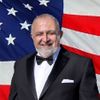 | Johnny Nalbandian (R) | 4.7 | 7,693 | |
 | Paloma Zuniga (R) | 1.6 | 2,614 | |
 | Sal Genovese (D) | 1.6 | 2,612 | |
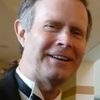 | William Meurer (G) | 1.0 | 1,598 | |
 | Tony Rodriguez (American Independent Party of California)  | 0.9 | 1,460 | |
| Total votes: 163,802 | ||||
 = candidate completed the Ballotpedia Candidate Connection survey. = candidate completed the Ballotpedia Candidate Connection survey. | ||||
| If you are a candidate and would like to tell readers and voters more about why they should vote for you, complete the Ballotpedia Candidate Connection Survey. | ||||
Do you want a spreadsheet of this type of data? Contact our sales team. | ||||
Withdrawn or disqualified candidates
- Susan Murphy (R)
General election
General election for U.S. House California District 30
Incumbent Brad Sherman (D) defeated Mark Reed (R) in the general election for U.S. House California District 30 on November 3, 2020.
Candidate | % | Votes | ||
| ✔ | 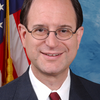 | Brad Sherman (D) | 69.5 | 240,038 |
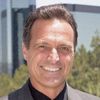 | Mark Reed (R) | 30.5 | 105,426 | |
| Total votes: 345,464 | ||||
 = candidate completed the Ballotpedia Candidate Connection survey. = candidate completed the Ballotpedia Candidate Connection survey. | ||||
| If you are a candidate and would like to tell readers and voters more about why they should vote for you, complete the Ballotpedia Candidate Connection Survey. | ||||
Do you want a spreadsheet of this type of data? Contact our sales team. | ||||
Nonpartisan primary
Nonpartisan primary election for U.S. House California District 30
Incumbent Brad Sherman (D) and Mark Reed (R) defeated Courtney Berina (D), Raji Rab (D), and Brian Carroll (D) in the primary for U.S. House California District 30 on March 3, 2020.
Candidate | % | Votes | ||
| ✔ |  | Brad Sherman (D) | 58.1 | 99,282 |
| ✔ |  | Mark Reed (R) | 22.7 | 38,778 |
 | Courtney Berina (D)  | 11.1 | 18,937 | |
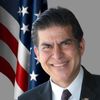 | Raji Rab (D)  | 4.7 | 7,961 | |
| Brian Carroll (D) | 3.5 | 5,984 | ||
| Total votes: 170,942 | ||||
 = candidate completed the Ballotpedia Candidate Connection survey. = candidate completed the Ballotpedia Candidate Connection survey. | ||||
| If you are a candidate and would like to tell readers and voters more about why they should vote for you, complete the Ballotpedia Candidate Connection Survey. | ||||
Do you want a spreadsheet of this type of data? Contact our sales team. | ||||
Withdrawn or disqualified candidates
- Paula Kahn (D)
- Naora Ben-Dov (R)
- Danny Fabricant (R)
- Royce Dorazio (Unaffiliated)
- Susan Collin (Independent)
General election
General election for U.S. House California District 30
Incumbent Brad Sherman (D) defeated Mark Reed (R) in the general election for U.S. House California District 30 on November 6, 2018.
Candidate | % | Votes | ||
| ✔ |  | Brad Sherman (D) | 73.4 | 191,573 |
 | Mark Reed (R) | 26.6 | 69,420 | |
| Total votes: 260,993 | ||||
 = candidate completed the Ballotpedia Candidate Connection survey. = candidate completed the Ballotpedia Candidate Connection survey. | ||||
| If you are a candidate and would like to tell readers and voters more about why they should vote for you, complete the Ballotpedia Candidate Connection Survey. | ||||
Do you want a spreadsheet of this type of data? Contact our sales team. | ||||
Nonpartisan primary
Nonpartisan primary election for U.S. House California District 30
Incumbent Brad Sherman (D) and Mark Reed (R) defeated Raji Rab (D) and Jon Pelzer (D) in the primary for U.S. House California District 30 on June 5, 2018.
Candidate | % | Votes | ||
| ✔ |  | Brad Sherman (D) | 62.3 | 80,038 |
| ✔ |  | Mark Reed (R) | 27.3 | 35,046 |
 | Raji Rab (D) | 5.3 | 6,753 | |
 | Jon Pelzer (D) | 5.2 | 6,642 | |
| Total votes: 128,479 | ||||
 = candidate completed the Ballotpedia Candidate Connection survey. = candidate completed the Ballotpedia Candidate Connection survey. | ||||
| If you are a candidate and would like to tell readers and voters more about why they should vote for you, complete the Ballotpedia Candidate Connection Survey. | ||||
Do you want a spreadsheet of this type of data? Contact our sales team. | ||||
Withdrawn or disqualified candidates
- Joseph Schrage (R)
See also
External links
Footnotes
- ↑ A majority in the U.S. House when there are no vacancies is 218 seats.
- ↑ These figures include the seat of Rep. Matt Gaetz (R-Fla.), who resigned on Nov. 13, 2024, after winning re-election.
- ↑ Daily Kos, "Daily Kos Elections' 2020 presidential results by congressional district, for new and old districts," accessed September 15, 2022
- ↑ Inside Elections also uses Tilt ratings to indicate an even smaller advantage and greater competitiveness.
- ↑ Amee LaTour, "Email correspondence with Nathan Gonzalez," April 19, 2018
- ↑ Amee LaTour, "Email correspondence with Kyle Kondik," April 19, 2018
- ↑ Amee LaTour, "Email correspondence with Charlie Cook," April 22, 2018
- ↑ 2,000 signatures can be provided in lieu of the filing fee
- ↑ Cook Political Report, "The 2022 Cook Partisan Voting Index (Cook PVI℠)," accessed January 10, 2024
- ↑ Inside Elections, "Methodology: Inside Elections’ Baseline by Congressional District," December 8, 2023
- ↑ Progressive Party









